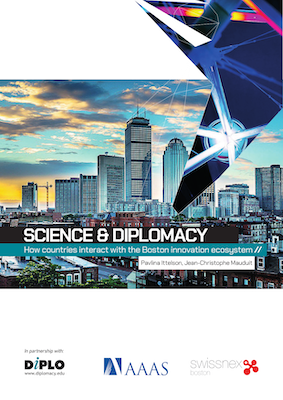Author: Massimiliano Lombardo
Science diplomacy at work: UNESCO, Latin America, and the Caribbean
2022
Note: This article is a part of the publication ‘Science diplomacy capacity development: Reflections on Diplo’s 2021 course and the road ahead’
Science Diplomacy could be defined as the art of using scientific knowledge and evidence to deal with complex social, economic and environmental issues of importance to human societies, as well as promoting agreements and cooperation within and among countries.
I consider myself to be a science diplomat. I have a BSc and MSc in Biological Sciences, and more than 20 years of professional experience in international development cooperation (bilateral, trilateral and multilateral) in the field of environment and sustainable development, for three different government agencies (representing Italy, the USA and the UK) and for an international organization of the UN system – UNESCO, which is recognized as an influential institutional actor in Science Diplomacy. Furthermore, I was inspired by the example of my father, a biologist like me, who was a science attaché at the Italian Embassy in Brazil.
Therefore, many aspects of the concept and the practice of Science Diplomacy (especially those within the three categories originally defined by the American Association for the Advancement of Science (AAAS) and the British Royal Society) are particularly familiar and relevant to me. This is because in my professional trajectory I have experienced different perspectives of working with science and diplomacy.
Firstly, working as a volunteer and then as a junior professional officer of UNESCO (in Brazil and in Southeast Asia), I learnt how to use “diplomacy for science”, with a multilateral approach to facilitate international scientific cooperation, mainly in the area of integrated water resources management. At that time, the boundaries between scientists and diplomats were very well defined, and it was generally very difficult to break them, especially within countries.
UNESCO, however, facilitated spanning these boundaries by bringing together diverse stakeholders from different countries to cooperate amongst each other. In this regard, one of my achievements was to convince the Japanese government about the importance of providing financial support to UNESCO to organize technical training courses on applied hydrology targeted to non-scientist government officials (traditional diplomats) of some developing countries in Southeast Asia. As a result, some of those government officials were able to advance the diplomatic relations of their countries with Japan, and, at the same time, they could better engage themselves and other diplomats of their country in regional cooperative initiatives of UNESCO’s International Hydrological Programme (IHP).
Secondly, when I worked in Brazil with the Italian Development Cooperation, USAID and DFID, as a policy advisor and as a programme manager, I practiced much more “science in/for diplomacy”, informing and advising donor governments on how to cooperate and negotiate with the host country (Brazil) on some very controversial issues, such as: conservation and sustainable use of biodiversity resources in indigenous lands of the Brazilian Amazon forest; access and benefits-sharing (ABS); violence against women and girls; food and nutrition security; international peace and security; and climate change. Working on those issues, generally I needed to defend and promote the views and interests of the donor country, while the ‘recipient’ country often wanted to affirm its views and interests, which, in many cases, did not take into account the perspectives of civil society and of the local and traditional communities.
Advising DFID in Brazil on the negotiations around the drafting of the 2030 Agenda and the SDGs, and using some diplomatic skills (especially public relations and intercultural sensitivity), I was able to make the traditional diplomats of Brazil and the UK find common ground in cooperating with UN agencies to support social protection and food security programmes in low-income countries in Africa.
Through those experiences, and especially with UNESCO, a ‘boundary organization’ that works actively at the interface between science and policy, I am becoming a ‘boundary spanner’ more and more, promoting and supporting cooperation among Caribbean Small Island Developing States (SIDS), especially as regards climate change adaptation and disaster risk reduction.
Most Caribbean SIDS do not see science, technology and innovation (STI) as a priority for their public policies. To this end, I plan to organize national and regional training courses on Science Diplomacy and science communication, which will simultaneously engage government officials and academic researchers, enabling them to use those as tools to promote science uptake and science-informed decision-making, at the national and regional levels, in specific priority areas that promote climate adaptation and resilience.








